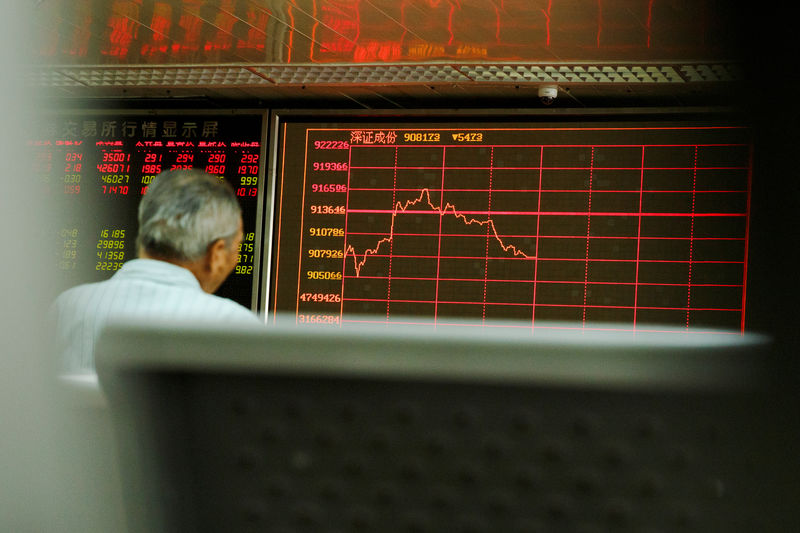SHANGHAI (Reuters) - China's dominance in widely followed emerging market benchmarks has investors worried about concentrated risks, fuelling demand for indexes that limit their exposure to mainland companies.
Global index provider MSCI's (N:MSCI) latest round of China stock inclusion, completed on Wednesday, took Chinese equities to 34% of the MSCI Emerging Markets Index, bigger than the combined weight of the bottom 21 country components. China's weight in the FTSE Emerging Index stands at 35%, and will grow to roughly 37% by March.
To some investors, spooked by a slowing Chinese economy and the protracted Sino-U.S. trade war, those numbers are uncomfortably high.
"Any time China faces a slowdown or faces overall market volatility, it is going to be the biggest driver of volatility in the EM portfolios," said Jason Hsu, chairman and chief investment officer of asset manager Rayliant Global Advisors. "Because it's so big, you don't get a diversification benefit."
Hsu said U.S. sanctions against Chinese firms create regulatory risks and could spawn more index customisation.
Thomas Taw, the head of Asia-Pacific iShares investment strategy at asset-management giant BlackRock (NYSE:BLK), said investors would increasingly see China as a separate asset class in emerging markets (EM), much as Japan was separated from the rest of Asian assets in the 1980s.
"It will make sense for portfolio managers to start allocating separately to EM ex-China, as well as getting China exposure directly through single country allocation," he said.
MSCI's global head of equity solutions, Sebastien Lieblich, said the index provider used transparent, unbiased rules to determine the weight of any country in its global and EM benchmarks. He said the methodology was based on market capitalisation of listed companies.
But the company offers custom indexes to address clients' concerns about concentration or regulatory risks, he said.
FTSE Russell, owned by the London Stock Exchange (L:LSE), declined to comment.
BLUESTAR
Investor concerns have created opportunities for smaller index providers such as BlueStar Indexes.
"Investors are awakening to a stark dichotomy during 2019, namely, at the same time that trade and geopolitical tensions between the United States and China are rising, the weight of China is also going up in their portfolio," said Steven Schoenfeld, BlueStar's founder and chief investment officer.
To address such concerns, New York-based BlueStar plans to launch its Emerging Market Risk-Controlled index in the next two months, which would limit investor exposure to China to about 24%.
Its "Policy Screen" would also keep out stocks such as Hikvision (SZ:002415) and iFlytek (SZ:002230), blacklisted by Washington due to national security concerns or human rights violations, Shoenfeld said.
"While these public policy issues are not directly related to investment risk, many investors are saying: 'Wow, this is a risk worth noting. This is a policy risk , a potential reputational risk or perhaps also a regulatory risk,'" Schoenfeld said.
Rayliant's Hsu says he wouldn't be surprised to see China being left out of EM indexes altogether.
"I hear a lot of our client prospects either asking about it, or wanting it," he said.
Other providers say active investment - rather than tweaking indexes - is the way to approach China risks, which could quickly change based on geopolitical developments.

"Investing in Asia and EM more broadly is better suited to active management for exactly these reasons," said Andrew Gillan, head of Asia ex-Japan equities at Janus Henderson Investors.